There’s Beauty In Your Brokenness: Deana Carter & Leah Darrow
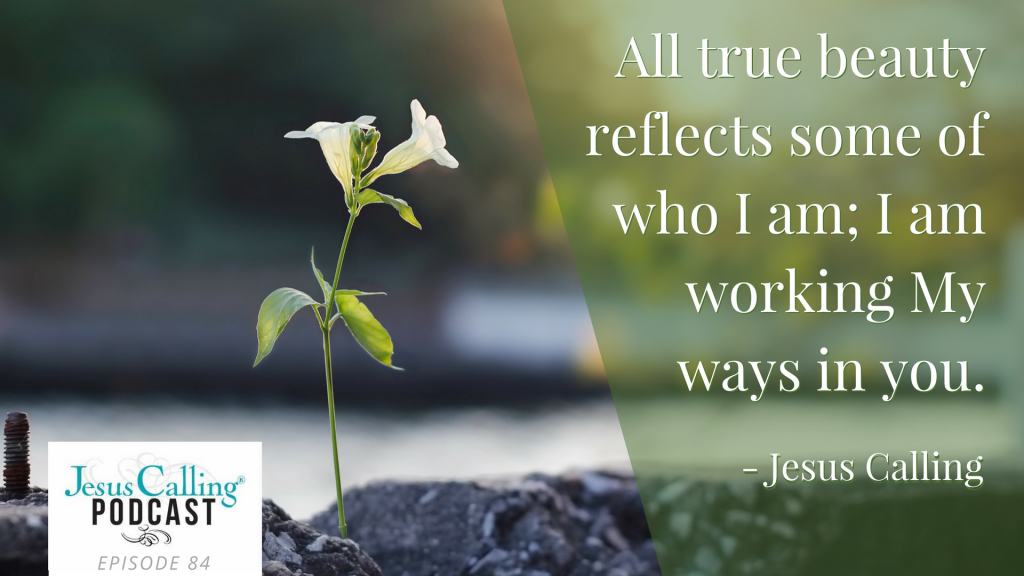
Today’s guests have had both fame and beauty, but ultimately came to realize that God’s definition of their value is far greater than how they’re seen by others, or viewed in their own mirrors. Deana Carter is an award winning country music star who is grateful for successful career in music, and even more grateful to know the truth of who she is as a daughter of Christ. Leah Darrow is a writer, speaker and a finalist on “America’s Next Top Model.” Leah’s view of beauty was shaped by a nearly impossible standard that left her feeling unworthy and defeated. It was only when she realized that authentic beauty comes from wholeness in God that her outlook began to change.
There’s Beauty In Your Brokenness: Deana Carter & Leah Darrow – Jesus Calling Podcast Episode #84
Narrator: Welcome to the Jesus Calling Podcast. Deana Carter is a CMA award winning country. The daughter of famed studio guitarist and producer Fred Carter, Jr., Deana grew up around country music legends. She broke into the spotlight herself in the mid 90’s with a multi-platinum debut country record. Deana talks about her early years and how a hurt she experienced in church kept her from going there for 20 years, but that God was always working in her life, leading her back.
A Life Filled With Music
Deana: I’m Deana Carter not De-anna. People call me De-anna. They have my whole life. But it’s DEE-NA, and I was born in Nashville, Tennessee, and I’ve been in California for 18 years.
My son is 13 and I’m a single mom right now.
I’ve been in country music my whole life. Being around Nashville, my parents were in the music business. I grew up in it. I grew up in the studio in Nashville. I grew up in that community, and it’s a beautiful thing. It’s a special place.
My church life growing up was we went to Goodlettsville First Baptist Church, and my mom made sure that we were there Sunday morning, Sunday night, Wednesday night, GA’s, RA’s, choir, youth group…all of that stuff. My dad didn’t go with us, so I was always just wishing he would go. He was working, and back then, they were doing 10, 2, 6, and 10 sessions around the clock, seven days a week because they were making all these records, and they had to physically make them to press them and physically put them out and all that. And then if he wasn’t in a studio, he was at the lake.
He was at Center Hill fishing. Sunday was that; the weekend was his time off. He was not a church guy. He was not a fan of preachers and stuff like that. But he was a God person.
I was disappointed by some things in the church and then I started struggling
with that a little bit thinking, “Well, maybe Dad’s right.” And so having both of those influences — thank God I had more of the church influence and more my mother’s “Jesus” influence in my life because I was a wild child and it brought me full circle.
“Thank God I had more of the church influence and more my mother’s “Jesus” influence in my life because I was a wild child and it brought me full circle” – Deana Carter
I made the conscious decision to hope to do music in my life at a really young age. I remember seeing Dolly Parton accept an award on TV. I always connected it with television, though, because you have to remember — when when we were young — it was the variety show that was king. There were the Mandrells and Dolly Parton and the Osmonds. Donny and Marie and Sonny and Cher. I mean, everybody had a variety show. So back in those days, music was a visual thing–before videos and all that. So you could really connect with the artists and their personality and all that on television.
So as a young girl, I watched Dolly Parton receive that award, and I would cry with them. You know, I was just like, “I want to do that, but how in the heck am I going to do that?
I see my dad and mom working. I see him in the studio making the records, but what is that process between making the record and the artists going out and being on the TV set? So I was I was a pretty interested little girl in that process… that void, and so I was determined to figure that part out.
Faith to Pursue The Dream
In college I played guitar — and actually I didn’t even pick up the guitar till I was in college — it was a gift from my dad. I played piano and sang in church. I sang at the sorority house at UT… I had to pay my way through college. I finally graduated. The whole time at graduation, I’m looking around like, “They’re going to hook me out of this line. I’m not going to make it.”
But I graduated, and then it was waiting tables and just the struggle, the struggle, the struggle because I had a goal in mind. I got signed to a publisher first. Then I got signed to a development deal. Then it was just such a long investment that Nashville would put into artists. That was such a blessing because they they did it with their time, their faith, and their money. They put their money where their mouth was. They would hone you, school you, groom you, media training… you know, all these things that we did. Capitol Records did that for me.
I was signed when I was 24 and “Strawberry Wine” didn’t come out till I was 29. It was a long journey — six years basically from signing to when it came out. I turned 30 when it was on the charts with the lyric. God is so amazing how He works it all out, but you just have to keep going in the process.
“God is so amazing how He works it all out, but you just have to keep going in the process.” – Deana Carter
It was unexpected, and there’s some stand out times I can remember laying in
between my parents in their bed. It was really early one morning. I used to cuddle them — even grown I would crawl in between my parents — and we got a call. Joanna Carter, from Capitol, said, “You’re nominated for these Grammys.” I just sat up and I said, “What? What does that mean?” because we were just doing promo. Back in those days, you were in radio stations, in a car driving through every state in America, and working hard. I mean, everybody from the label to our band and management and everybody just worked their butts off, and so I never really realized it was everywhere. I really didn’t.
The most shocking thing to me, I think, was when my one of my cousins’ spouses asked me for an autograph or something at a gig. I was like, “It’s me. It’s me.” Like, “Who are you talking to? It’s me.” That was kind of odd because it occurred to me that they were looking at me differently, or proud of me, or whatever that was as opposed to, “Are you washing dishes or am I washing dishes?”
Matraca Berg and Gary Harrison wrote the song, but it was the bookend song to “Before We Ever Heard Goodbye,” the song I wrote about my high school boyfriend. It completed that whole record. It was like the glue that brought all those songs and stories together.
I just think: everyone’s had a first love; everyone’s been 17; everyone has grandparents; everyone has had a breakup that broke their heart somewhere along the way. All of these dominoes were in this song, and being able to pull it off and perform it live and mean it was what did it really. And that has been the truth.
Connecting with The Truth
So when we’re talking about Jesus Calling, or my parents and the music they did, and this whole conversation we’re having today, it is rooted in truth. Sometimes we don’t like the truth, but that doesn’t mean we don’t connect with it. I think so many people connect with that. I can’t believe that I got to sing that because that song has provided 20 years of a music career that I never dreamed. A classic… I never dreamed I’d get to have a part of that.
“Sometimes we don’t like the truth, but that doesn’t mean we don’t connect with it.” – Deana Carter
I got focused creatively and professionally, but personally I was still not solid in my relationships and all that. When I went to college, I didn’t go to church for 20 years. And I made a point that I wasn’t going to go. I went the other way. But here’s the difference… I always had Jesus in my heart. Always. I was baptized at 7. I think it’s important — honestly, a lot of people have been hurt by the church itself, and then they walk away thinking that God’s let them down — in truth, there are human beings in church. We’re all faulty, and we’re all works in progress. I know that now, but at the time, I was at such an impressionable age, I got into like numerology. I got into astrology.
I just went on a spiritual journey. Like, “Well, is this the only thing out there? To be honest, immature, silly things that you do in ignorance of what might be out there because you’ve been in one system your whole life. I did everything… and explored everything. I met up with people and got involved with people and it took me down a road where I was a “party girl.” It wasn’t major drugs and alcohol, but it was party time. It was experimentation time.
Time For a Change
The spiritual change came for me when I got pregnant with my son, and I wasn’t married. I was between marriages, and that was shocking and just put me on my knees. Like, now I’m responsible for a human being. You know… You trust me enough for this. So that was it. That’s when I really went back to church and started diving back into my spiritual connection with God and praying for His help and asking for His forgiveness and asking for Him to help me get through this to be a good mom. Hayes was the biggest blessing in my life.
I think the biggest change has been humility in confessing my faults and seeing where I need to improve, not pointing the finger at everybody else, having a little more empathy. Those kinds of things — when when God works on your spirit — the change starts happening with you.
“…when God works on your spirit — the change starts happening with you.” – Deanna Carter
That was God working on me creatively and professionally… just getting rid of the monkey business in my life, really. But He knew I still had so far to go, spiritually, with my convictions and my personal life and my personal beliefs and all that.
I found out about Jesus Calling because, once again, God put so many beautiful people my life. It was given to me as a gift by Holly Chapman, who is an amazing hair and makeup person here in Nashville. And we talk about our faith. You know, that’s the other thing that God would do is put me in these scenarios to make me more verbal about my faith. He would push me in that way, and then I would connect with people that were Christians as well and share. And that was a real strength builder for me during all this transition time. So she gave me the book. Holly gave me a copy of it and wrote a sweet note in the front. And I took it back to L.A. with me, and I read it. I wore it out.
You know when you’ve memorized Jesus Calling — pretty much 365 pages of that — it’s time to get the new one. I could go to March 12th and read what it says, but it was monumental. That book was monumental.
During another really challenging time in my life — going through a lot of loss with the loss of my dad — and having those anecdotes every day. You know, I try to put my feet on the floor and pull that out first instead of my phone so that I get my priorities straight for the day.
I have the Jesus Calling app on my phone because when I travel, it’s right here, and it’s so convenient. I love it. You can take notes and share, too. That’s really nice to do.
Jesus Calling, February 1st
I wanted to highlight February 1st… and this is so important.
It says, “Follow Me one step at a time. That’s all I require of you. In fact, that’s the only way to move through this space and time world. You see huge mountains looming, and you start wondering how you’re going to scale those heights. Meanwhile, because you’re not looking where you’re going, you stumble on the easy path where I’m leading you now. As I help you get back on your feet, you tell me how worried you are about the cliffs ahead, but you don’t know what will happen today… much less tomorrow. Our path may take an abrupt turn leading you away from those mountains. There may be an easier way up the mountains that is visible from the distance. If I do lead you up the cliffs, I will equip you thoroughly for that strenuous climb. I will even give My angels charge over you to preserve you in all your ways.
Deanna Carter’s TGIF – ‘Thank God I’m Forgiven’
We’re supposed to live in the moment and trust God for each day, and everything in His word tells us to stop worrying and don’t worry and don’t fear and all those things, but the only way we’re going to do that is if we’re looking beyond where we’re at.
Jesus Calling inspired me to do my TGIF-isodes that I started last year every week… not every day. But I want to have my own devotion book or something because it was just so inspiring the way Sarah did the book, and approached it, and explained how the inspiration came around for her just helped me so much.
I was in Florida visiting my mother. And my mother, my whole life has said, “TGIF. TGIF,” on Fridays. Being apart from each other, we call or text, “TGIF. I love you.” It’s just our little tap-in and something my mother started for us.
I talk about personal things, but it’s definitely Christian rooted. I go to the Bible, and I use my mom’s old Bible where she’s highlighted all these things and colored pencils and all this stuff to just get through life. What’s the topic of the day? What has God put on my heart this week to talk about?
It was actually January 19th, I think, of last year, and I posted it and got it on YouTube — it’s on my YouTube channel — and got a few responses. Then, the next week I just kind of followed up. I did 52 of them. I just finished it, and and I thought, “Well, I guess I’m done. You know, we’ve gotten more subscribers, and people are saying. “Please don’t stop doing this.”
So, we do those every week. The TGIF I dubbed, “Thank God I’m Forgiven” because goodness, we all are filthy rags. All of us. We have to just acknowledge our Maker and acknowledge His grace. That’s the only way we’re going to have empathy for anybody else. So, that’s kind of how I do it and why I do it.
“We have to just acknowledge our Maker and acknowledge His grace.” – Deana Carter
The irony in our day and age is we claim we have community, but we don’t have community because we’re doing it on devices. We’re not even talking. We’re texting and those kind of things. So we have community, but we don’t have contact, and it’s important to have that spiritual connection in person.
That’s what Jesus Calling does.
Before I pick up my phone — because I do have the book — but before I read all those texts and all those emails and all those things, I just try to honor him with my attention first.
To find out more about Deana Carter and to view her YouTube series “TGIF-isodes,” visit DeanaCarter.com.
Stay with us for our next guest, former model and America’s Next Top Model contestant Leah Darrow right after this brief message from Audible.
Audible Message: As a special offering to you, the listeners of the Jesus Calling Podcast, Audible is offering a free audiobook download with a free 30-day trial to give you the opportunity to check out their service. Find your favorite Sarah Young titles, including Jesus Calling and Jesus Always in an audiobook version, and get it for free by trying Audible.com. Check out a small sample of the Jesus Calling audiobook featured at the end of this podcast. To download an entire free audiobook today, go to audibletrial.com/jesuscalling. Again, that’s audibiletrial.com/jesuscalling for your full, free audiobook. Now, onto the second half of our show.
A Dream to Be Brave
Narrator: Leah Darrow is a former model, a speaker, and an author. After time as a contestant on America’s Next Top Model, Leah went on to write about her experiences and to address the lies women are told about their worth being tied to their appearance. Her mission is to show women how they can reclaim true and lasting beauty when we reflect God’s glory and embrace our value as He made us to be.
Leah: My name is Leah Darrow, and I am a wife and a mama to 3… pregnant with number four. I feel very called to talk about the mercy of Christ and helping women raise the bar overall for their lives to the level of the dignity that God created them in.
My family and I grew up in Norman, Oklahoma. I actually grew up on a farm — a real working farm, not just a house with a lot of land. There were cows and chickens and all sorts of things. So I grew up with no neighbors around me. I grew up with a lot of silence. I grew up with jumping on very large hay bales for fun, riding in the tractor with my grandpa, and feeding the cows.
I was actually a very shy kid. I was pretty quiet, but there was a lot going on underneath. I had a lot of dreams, and I always dreamed of being brave. I was always very shy and pretty quiet in class and in school. But I always had these big dreams of doing something really great and being really brave and not knowing exactly what it was, but I knew that there was a calling. There was a calling to be brave and to do something great. And even though I was shy, having that desire to do something great and to be brave.
“I always dreamed of being brave.” – Leah Darrow
It really started in high school for sure. I can pinpoint the exact moment in time when things began to derail. I was 15. I had just moved from Oklahoma to St. Louis. My family moved because my father’s job transferred us. I was in a new place trying to get new friends, and granted, I had all of those messages that that most young girls had been given about being pretty and looking pretty or just right was important, and I recognized that. I also recognized that being in school, the pretty girls got more attention. They got more attention, not just from boys, but from teachers too. So, it was just obvious. That was something that was valued in culture a lot, and there wasn’t any other counter message of being brave or smart or kind to equal the level of influence that beauty had.
I noticed that all the girls, especially the pretty popular ones, had boyfriends. So I thought, “Okay, that’s a good idea. I should probably get one of those.” So I picked one out, and I became his girlfriend; he became my boyfriend, and I really was just using the relationship to validate my worth.
“there wasn’t any other counter message of being brave, or smart, or kind to equal the level of influence that beauty had.” – Leah Darrow
Longing To Be Loved
So it was there, actually, in a relationship where I thought everything was going to be okay, but it actually did not turn out that way. When I was 15, in this relationship that I had in high school — I was a sophomore in high school — because I began to see my worth and my value in the exterior, it wasn’t hard to make the jump to make the connection to see that love should also be this exterior experience. That it should be something not necessarily — I mean, obviously it’s felt within — but there’s also you have to prove it. So you prove it with actions, and you prove it with your body. And at 15, I gave myself away. I lost my virginity at 15, and it was a moment that I know — when I think back in my whole life — I know it’s so funny, but I go back to that moment — not because it was obviously a very big moment and had a huge impact on my life — but I realized that I was wanting to be loved so much.
I tried for that in the wrong ways, and it was a free will decision that I made on my own with my boyfriend, and I think we both just didn’t understand what love really was. After that moment, instead of going back to God, instead of asking for forgiveness and accepting the mercy of Christ and moving on and being better than I was the day before — which is what I should have done — I didn’t.
The Loud Voice of Shame
That voice… that voice began to speak loud; and that voice told me I am my sins and my mistakes; that I’m damaged goods; that I screwed up; and I am definitely worse than anybody else because my parents go to church every Sunday. My parents are active in the church, and they do a million things: Bible studies, marriage prep, etc. They are super involved. I go to youth group, and if I screwed up, there’s no hope. There’s no way. God will forgive everybody else, but I’m afraid he won’t forgive me. And if He does forgive me, it’ll go something like, “Leah, I forgive you, but I’ll never forget.” That’s actually what began to change my perspective and my view of myself and redemption, and I began to distance myself from God and from church and my church community because I didn’t think there was a space for me. I didn’t think I deserved it, and I was ashamed.
“…that voice told me I am my sins and my mistakes; that I’m damaged goods; that I screwed up.” -Leah Darrow
So, after high school and that experience, I began to pretty much give up on faith — not because I didn’t believe in God and not because I didn’t think that He could work powerfully in people’s lives. I just had so much regret and shame, and I didn’t know what to do with it.
Frankly, the world was giving me a message and an opportunity to say, “Hey, it’s not that big of a deal. Don’t worry about it. Everybody’s made that mistake. You’re not the only one. Next time, just choose a better guy, and it’ll be okay.” Or, “take this quiz in the back of a magazine and then you’ll really figure out if you’re ready to take that step the next time.”
I began allowing the world, I guess, I mean culture, to give me my guidance and to give me my commandments, in a sense. I looked to all of that because it was easier… because they were telling me: “There’s no problem. Don’t worry about it. Don’t worry about it.” So, that’s what I did. All throughout college, I lived in that frame of mind. My worldview became whatever was written in the pages of Cosmopolitan magazine. My worldview consisted of whatever I watched on the E! Network. It was just this whole realm of fantasy, really. I also took the culture’s view and opinions on what a woman should look like, what a woman should do in the world, and how her relationship should look. So that began to shape me, definitely, in college. I mean, I was still somewhat of a little bit of an academic nerd. I ended up graduating with high honors with my Bachelor’s in psychology from the University of Missouri, St. Louis.
Competing for Something We Can’t Control
I had plans. I had been accepted to a Ph.D. program for psychology, and I thought, “Well, maybe I’ll just put that on hold a bit and try what the world has offering me.” And I had been told by strangers, you know, people who really cared about me, “Oh, you should model. You should. You should. You should try this out.” So these suggestions from random people based on just what I look like, based on just my body, I just decided: “Well, maybe I’ll try it.” I mean, I had no idea. I had no background really in any of it. So, I gave it a shot, and I began to just do a little bit of modeling here and there. Then it wasn’t long after college where there was this new TV show that was up and coming, America’s Next Top Model, and they had already finished one or two seasons of it. So cycle 3 was coming up, and I thought, “I think I’m going to audition.”
So what’s being evaluated is me, and my body, and how I look. On top of that, I’m competing. I’m competing with every other girl in line, and that got to me. I did not like that. It bothered me a lot, but at the same time, I just thought, “That’s because I’m insecure. That’s because I’m just being a girl, and I just need to suck it up and get on with it.” But I still can feel that feeling in the pit of my stomach of being in line with all these girls and realizing that there are girls in line all over the country — hundreds of thousands of girls, and we’re all just competing. We’re all just competing for something that we can’t even control, to an extent. And that it bothered me, but I still wasn’t sure why.
I ended up getting chosen. I was one of the 13, I believe, girls on cycle 3 for America’s Next Top Model. That was, I thought at the time, a huge moment in my life. I remember looking at a lot of my fellow contestants and realizing the brokenness in me too, and just being like, “We’re not very whole, you know. We’re clearly lacking in some areas that we shouldn’t be, and we all have these struggles.” It just kind of reminded me that there’s a problem here and that this is not a group of really well-balanced, super happy, fulfilled and satisfied women. This is a group of young women who are begging to be chosen by the world to be validated, and we are allowing ourselves to be validated only on our exterior… nothing within our heart, nothing with what we can do for the world, nothing with what we can think. Nothing like that.
“We are allowing ourselves to be validated only on our exterior… nothing within our heart.” – Leah Darrow
Nobody twisted our arm. We’re on this show because we volunteered and auditioned. On top of all of that, now we’re competing. We’re tearing each other down. Now there’s rumors, and everybody’s talking in the rooms. It’s just constant drama, and we are being entertained by brokenness. We’re being entertained by other people’s brokenness. We’re being entertained by watching other people fail, watching them fall, watching them maybe make some bad decisions in their life. We watch them hurt others, and we we have our favorites. We root for one or the other, and I strongly believe that we should never be entertained by brokenness. We should never do that. We should, if anything, reach out a helping hand. We should do something about it. We were not created to compete with one another. We were created to contribute.
“We were not created to compete with one another. We were created to contribute.” – Leah Darrow
America’s Next Top Model ended for me by me being eliminated, you know, in front of everyone on TV and at home, which is the name of the game. It’s a reality TV show, obviously. I just turned and walked out of the room and went and packed my bags and got my stuff out, and then it kind of hit me. I felt hurt and sad or whatever it was, for just not being chosen, but still kind of confused. Why did I have relief and joy in the beginning? Obviously, now I can see the connection to that. I can see why. It’s really nice to not compete anymore for something that we all can’t control in terms of what we look like. So there was relief of just letting go with the drama and letting go of the vanity of it all.
After America’s Next Top Model, I decided I was going to move to New York and give this whole modeling thing a shot. Obviously, knowing that I was just on a reality TV show that would be airing soon, and I could maybe leverage that with a few gigs that would help me create a platform and a foundation to actually have a career.
Then I began to really seek out modeling jobs. I ended up being able to to get some paid jobs, and I was modeling professionally in New York after the show. Of course, my picture is in Times Square, and it’s on the side of taxicabs and everything from the show, so it was a time where — it’s all smoke and mirrors, but — I felt very wanted, and I felt really important, and I was doing tons of radio and TV interviews for the show, especially when the week aired that I was eliminated.
Then once your week ends, you’re completely forgotten. Who cares? Who cares about you?So, once again, you’re always up and down. It’s this roller coaster of a profession of never being good enough. You’re never good enough because you’re always competing the next day for the next job, and you’re competing now, not just with 13 contestants on a TV show, I’m competing with a universe of women all around the planet who are coming in by the buckets. They’re flying into New York every single day trying to get the same job I’m trying to get, and I’m trying to be better and prettier and skinnier than they are to get the job. It just never ends.
Finding Courage In the Darkness
It began to take a toll, and it took a toll on me mentally, obviously, because we’re mind, body, and spirit. It’s all connected, and this this slow forming depression began to kind of crawl over my life. It just became a little bit darker each day. One night, when that darkness and the noise of the darkness and the noise of that idea was so great, I thought, “Okay. Fine. Fine. That’s it. It’s over. I’m done. I’m exhausted by this. I’m exhausted by living this way. I can’t live like this.”
I really decided to give up, and I attempted suicide at that time, and I failed. For me, it was, “Okay, so if I go through this, if I do this, what will happen?” I was trying to be as logical as I could in a very illogical moment. I remember really being able to pull back and have a moment of reality. When I did, I could see my mom, and I could see her talking to somebody years later after I killed myself. They would ask her, “So, how many kids do you have?” I remember just thinking, “How would she answer?” I could see my mom having a hard time. What does she say? Does she say she has six, but one’s dead? Does she say she just has five? Does she even bring me up any more because it is too painful? That was a moment for me where I was like, “I just I can’t do that to my mom.”
So, I failed, and I stopped. I began to take a pause, and I began to realize that I really needed help. I needed help from professionals. I needed people who loved me to be around me. I needed some therapy. I needed to rethink what was going on and how I got here. I needed redemption. I needed mercy.
I knew there was a truth being revealed to me that was always there from the beginning, but I had allowed so many things to take its place. I also knew that was my moment. That was my moment to be brave.
I called home, and my dad picked up. I just said, “Dad, if you don’t come and get me, I’m going to lose my soul.” There’s a long pause. I really had no idea what he was going to say back to me. But when he finally spoke, he just said, “Okay, baby. I’m coming to get you.” My daddy drove over 2000 miles to come pick me up.
“Dad, if you don’t come and get me, I’m going to lose my soul.” – Leah Darrow
True Beauty Sees the Brokenness Within
After my dad came and picked me up from New York, that began a process — a long process — of spiritual rehabilitation. My dad came to pick me up, and it was a good thing. I had people that love me and that supported me. I was able to be honest with myself, and the first thing that I did — the very, very first thing which was a strong suggestion, definitely emphasizing the strong part, from my dad — was to reconcile myself with God. And so that’s what I did. That was the first step I took, actually, was I went back to Christ. I went back to God, and I just got on my knees, and I asked for forgiveness. And I was honest with who I was. I didn’t pretend to be something better or or anything else. I asked for that forgiveness, and that definitely is important to note because where I’m at today, I mean, it’s all because of the grace and mercy of Jesus Christ.
“I went back to God, and I just got on my knees, and I asked for forgiveness. And I was honest with who I was.” – Leah Darrow
Part of that unraveling and part of that spiritual rehabilitation was really looking at how God saw me, and how God sees beauty, and what that looks like in the world; and really unraveling the lies that I allowed myself to believe, and how that was intertwined with how I saw my worth and my value as a human, as a daughter, and as a woman. So that began something of a very long process that God has brought me through and is still bringing me through to this day.
Authentic beauty — true beauty — is about holiness and wholeness. It is about being like God. It is about letting our view and our heart be set on Him alone who makes all things new, who transforms, who redeems. That is what a true beauty is. It’s also about wholeness: being honest with ourselves, seeing the brokenness within, and asking for Christ to come in and fill those gaps to heal us, to make us new, and to transform us.
“Authentic beauty — true beauty — is about holiness and wholeness.” – Leah Darrow
All of that was coming after my conversion was a really big piece of being able to read these pieces of meditation, these moments of reflection, just to give me a little something extra. Some were very hard for me to read. Some of those devotions were very difficult because they were true. Some of them weren’t difficult because they were calling me out; sometimes it was just difficult because God loves me that much. He loves you that much, and it was just overwhelming.
I can’t even remember when Jesus Calling came into my life. It was soon after my conversion… after coming back to Christ and just accepting Him fully and wholly in every piece of my life, not just Sundays. I don’t even know how I got my first copy. I don’t really remember if somebody gave it to me or if I picked it up or if I found it, but I remember the copy. I still have it, and I remember opening it up and just reading some passage and just being blown away.
I remember just shutting the devotional so many times and being like, “I just… I just can’t. I just can’t. I can’t go on.” But that was a beautiful time my life being able to find that peace. It was just like an extra sister in Christ saying, “Leah, you can do this. You can do this, girl. Just stay focused on Christ.”
Jesus Calling October 12th
There’s a particular devotion on October 12th, and it says, “Beware of seeing yourself through other people’s eyes. There are several dangers to this practice. First of all, it is nearly impossible to discern what others actually think of you. Moreover, their views of you are variable, subject to each other spiritual, emotional, or physical condition. The major problem with letting others define you is that it borders on idolatry. Your concern to please others dampens your desire to please Me, your Creator.”
Reading that that piece of that devotional on October 12, there were so many reactions. One, it was like, “That just summed up about 10 years of my life in those three sentences.” And at the same time, I’m like a screaming from the top of my lungs like, “Preach!” You know? Like, “Yes. Yes.” Because I’ve been there. I’ve done that.And He then goes on to tell us how much He loves us. And later on goes on to say that He has laid down his life for his friends, and that’s love. That’s love. That’s beauty. That’s beauty. When our focus is not inward, but it’s outward, that’s the beauty we’re called to. And that’s what authentic beauty does. That’s the beauty we are called to.
In my new book The Other Side of Beauty, I wrote that so that it could just… it could honestly just be a voice into women’s lives to remind them that they are very good. To remind them that they are so much more than what they see… so much more.
Really, truly, that authentic beauty of Christ — that is what unchains us. It unchains us from the standard of beauty that is keeping us down. And the authentic beauty of Christ elevates us to our dignity as adopted daughters of God Almighty. I truly believe that many of the problems in this world will be solved when we, sisters in Christ, learn to get along. When we allow ourselves to accept that beauty is not just in what we look like, but it’s in what we do.
I truly believe that women have been have been called to be ambassadors of God’s beauty in a very special way, in a particular way. There’s something inspiring and very hopeful about that; if we begin to look at our lives and unravel all of the ideas that have been woven so tightly into how we see ourselves, and how we value ourselves, and then begin to ask God to come in and to show us the beauty that He has put there.
Narrator: To find out more about Leah Darrow’s book “The Other Side of Beauty,” please visit LeahDarrow.com.
Call to action: Hear more great stories about the impact Jesus Calling is having all over the world. Be sure to subscribe to the Jesus Calling Podcast on iTunes. We value your reviews and comments, so we can reach even more people with the message of Jesus Calling. And if you have your own story to share, we’d love to hear from you. Visit JesusCalling.com to share your story today.
SaveSave
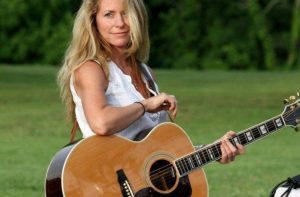
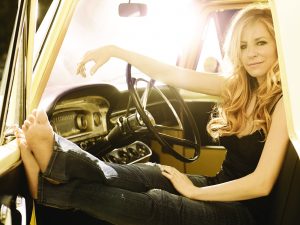
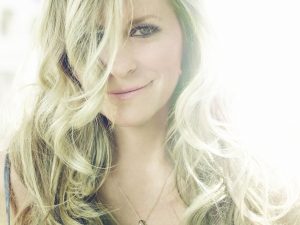
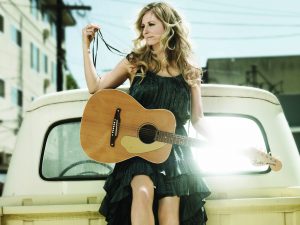
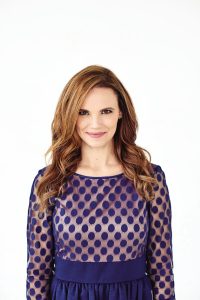
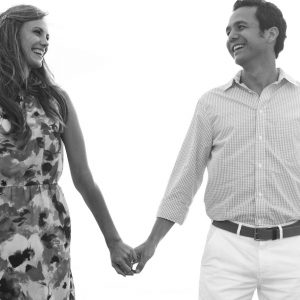
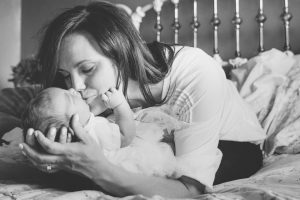
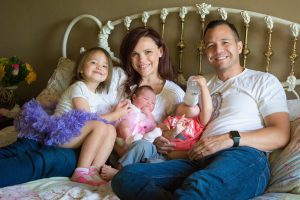
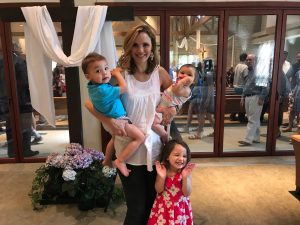
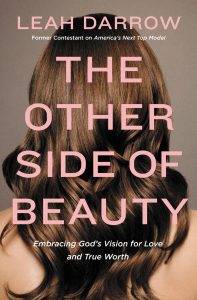


heartwarming and honest/ thanks for your honesty and how Jesus Christ speaks to every level of our pain and brokenness. Paula